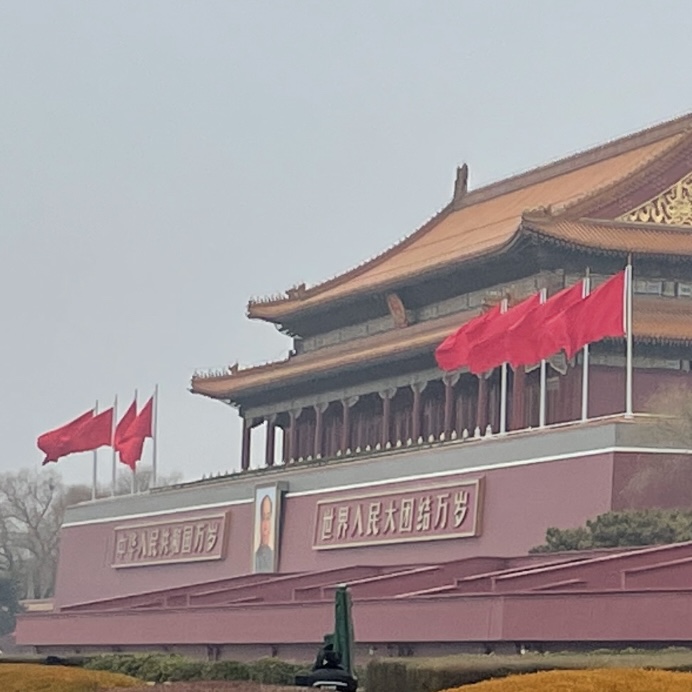The west, the global north, developed countries, the imperial core. I understand and am aware of some of the etymological differences between these words, but what is their difference in practical terms?
It seems that from a Marxist perspective these are one and the same, all designate the same grouping. I hear the west the most often in Lemmygrad, but which term is the most precise, or which might be the best to use?
I’d like to hear your perspectives and analysis.
Use whichever one you like so long as everyone understands what is meant. In my view “the West” is kind of a colloquial term, it’s very poorly defined and a lot of leftists sort of mockingly use it to ridicule the Eurocentric notion of “Western civilization” which is often a racist/chauvinist dogwhistle. But it’s a useful shorthand that everyone understands. The others are generally preferable to use in serious theory discussions since they are more precisely defined, though also not without some ambiguity. On the other hand “global north” has the disadvantage that it can be confusing for those who are not familiar with the terminology and might think it just refers to a country’s geographical location. Also, sometimes you need a bit more nuance than the simplistic two camp core-periphery model can offer. For instance on the question of Russia which is both a developed country that is geographically in the global north but also very much not part of the imperial core and associates both politically and economically more with the global south. In this case it is necessary to include a third category of semi-peripheral countries. Furthermore, as countries in the global south are developing quite rapidly, especially China, we will see the emergence of two different types of “developed” countries, ones which owe their development to imperialism and ongoing (neo-)colonial wealth extraction, and those that do not.
I prefer “imperial core” because I’m talking about the imperialist countries and their close allies. Russia is also in the Global North and Australia isn’t in the West
I use ‘west’ most frequently because it’s the shortest. Sometimes I even just say, ‘they’, if the context makes it clear that I’m talking about the bourgeoisie. But you’re right, for most purposes these are synonyms.
I think ‘west’ falls down the most when talking to liberals because it’s a bit antidialectical. It’s natural opposite is ‘east’. While everyone seems to understand that Australia, New Zealand, and Japan are included in ‘west’, it makes much less sense to refer to LatAm, Africa, Asia, etc as the ‘east’. Indeed, it makes so little sense that I don’t think anyone means that. But if they don’t mean that, then ‘west’ is being used as a static, isolated category. And individual liberal workers feel called out when we say ‘west’, but the real target is the west-as-the-beating-heart-of-capitalism. When talking with liberals, we need to insist on the relational aspect of our terms.
In that situation, it’s more helpful to say global north, which does presuppose a global south. And developed, which presupposes ‘underdeveloped’. On this one, though, care is needed. Liberals use developed/developing, in part because their liberal sensibilities tell them it’s rude to say that another people/state/etc is underdeveloped. It implies inferiority.
To be clear, liberals think developing countries and the people who live in them are inferior, but liberals don’t like it when you point this out. Liberals like to imply that (1) to be capitalist is to be civilised, (2) some countries are ‘developing’ (i.e. towards capitalism), (3) it is possible for developing countries to become developed, (4) if some countries are still developing, they have not yet arrived at capitalism, hence they must be uncivilised, but (5) liberals pretend not to be racist, so they cannot admit this.
You might say, but you get to the same conclusion if ‘developing’ is replaced with underdeveloped and, anyway, liberals admit this, redtea! They explicitly use this logic as justification for IMF, World Bank, and WTO restructuring. It’s even included in the highest forms of international law, right there in black and white! In this case, the liberal animal may be pretending that every so called developing nation will one day be developed if only [insert an incredibly racist reason as to why underdeveloped states are underdeveloped].
‘Underdeveloped’, unlike ‘developing’, raises the questions, why and by whom? The ruling class does not want you to ask, nevermind answer, these questions.
By rejecting the liberal framework and using developed-underdeveloped, we can point out that no underdeveloped country will ever develop for so long as the west (hello old friend) keeps stealing the resources and labour, destabilising governments, assassinating progressive (or even effective, successful, or independent) leaders, holding them down with unpayable IMF debt, and insisting that all tech must be imported (not allowing the locals to grow their own high-tech industries, which, you know, makes it almost impossible to develop).
Liberals have also tried to do something similar, with making ‘third world’ a dirty word. For them, it’s not a dirty word because it’s rude to people in the third world (although this is what they will tell you), it’s a dirty word because it insists that there are global divisions and that, unlike liberals have been claiming since Fukuyama, history is not yet over. The existence of a third world reveals the lie behind the claim that if every country is capitalist, it’s only a matter of time before they all become developed.
In sum, it depends on the context. But whatever the context, the underdeveloped third world will have it’s glorious day once more.
Edit: typos
The West I typically say in reference to philosophy and ideology. Specifically ideas surrounding a linear, progressive view of history and morality. Some marxists fit into this quite easily.
The Global North vs South is useful because it’s a less anachronistic way of talking about “first world” and “third world” by removing the context of the Cold War. Most rich countries are in the North with minor exceptions.
Then there is world systems theory which uses core, semi-periphary, and periphery. This is usually more specificly about capital. Where is the capital? Where isn’t it? Sometimes financial capital is prioritized and sometimes it is productive capacity. Technically, this does not entirely apply to nation states, but can also apply for certain sectors. If you have concentrated capital in one sector (like agriculture) you might be considered core for that sector but not in a sector you have no capital for (idk like satellite tech or something) so you are peripheral in that sector. This is especially true in semi peripheral countries like the BRICS countries. There is also the (oversimplified) implication that core countries exploit and peripherals are exploited but semi-periphary nations very basically do both and are sort of caught up in the greater global system in one way or another so as to develop sovereignty. What is important however, is the interrelationships of nations.
Many of these distinctions are exhausting because as you point out they usually are talking about the same thing. So what is that? Well I’d say it is the continuity of colonialism as it is manifested in the present “globalized” world. It stands on certain philosophies and is visible in geography. The terminology is usually more important to nerds but I think at the end of the day it describes how some parts of the world enforce domination on to other parts to maintain class society which is fueled by imperialism.
If you want a technical economic designation, OECD vs non-OECD. These wage rates from the ILO are illuminating, showing that OECD workers make on average, 11x more, PPP adjusted.
Inflation-adjusted Average Wage Rates for male workers in 2007 _ Monthly wage for OECD workers $2,378 Monthly wage for non-OECD workers $253 Hourly wage for OECD workers $17 Hourly wage for non-OECD workers $1.50 Factoral Difference between OECD and non-OECD wages 11 Median Global Hourly wage $9.25





